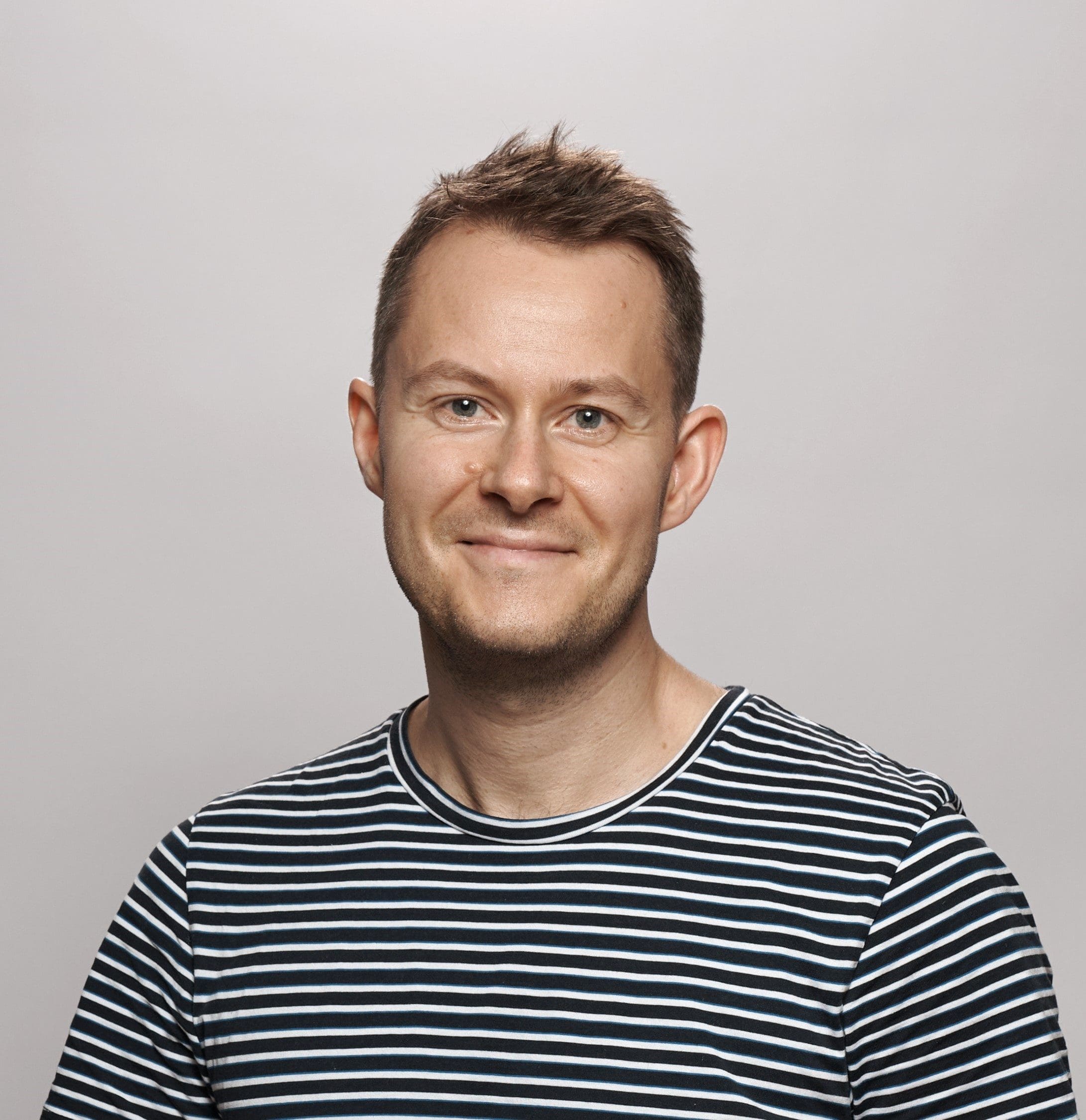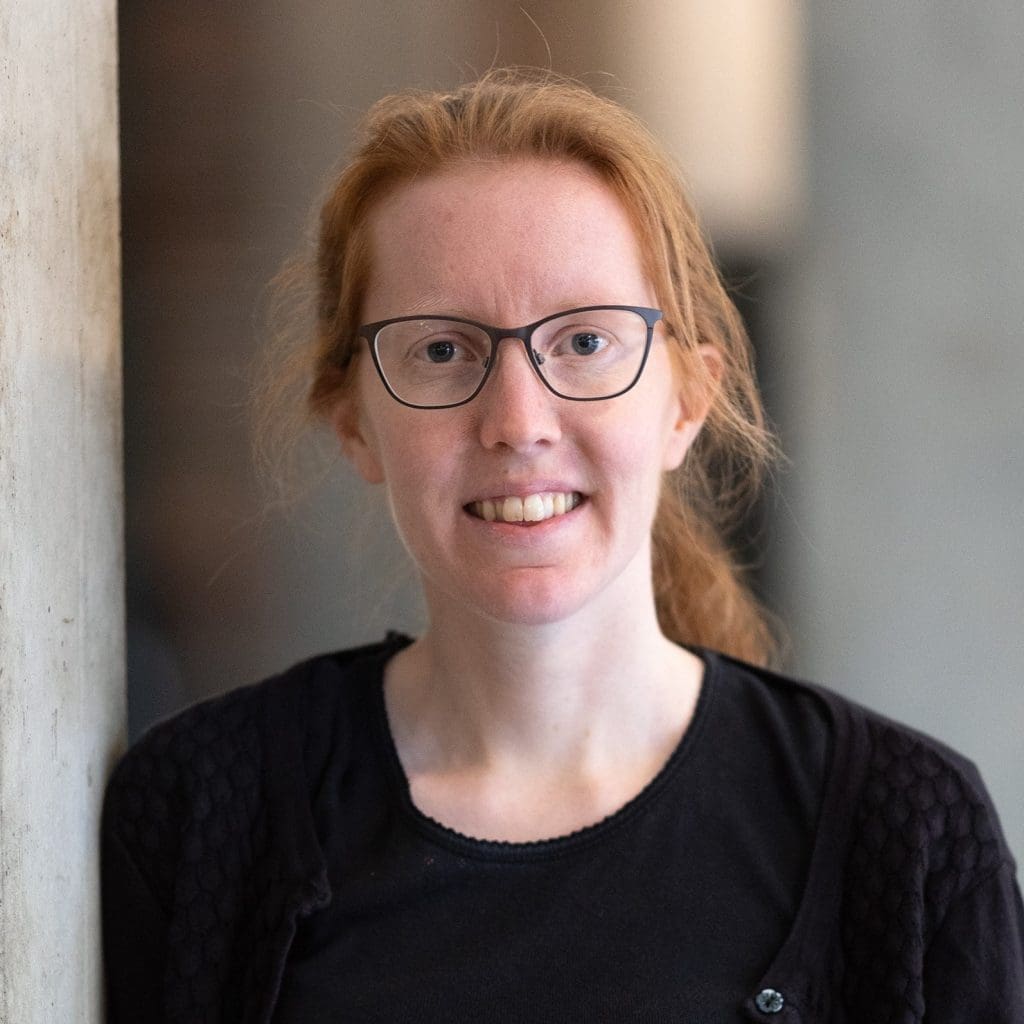
At this year’s DDEA Annual Day, the two DDEA Early-Career Researcher Awards were awarded to Stine Linding Andersen and Lærke Smidt Gasbjerg. The DDEA Research Education and Networking Award was awarded to Morten Dall. Read more about the three award winners and their research below.

As a medical student, I developed a particular interest in the field of endocrinology. During my first year of clinical training, I specifically chose a position in a Department of Endocrinology. It was there that I learned more about thyroid disease and became acquainted with the thyroid disease research unit at Aalborg University Hospital. This experience piqued my interest and set me on my current path.

My research centres on thyroid disease, particularly in relation to pregnant women and the health of their offspring. Thyroid hormones are crucial during fetal development, and abnormal levels of maternal thyroid hormones in pregnancy may ‘programme’ the fetus for the later development of disease.
I work as a medical specialist in a hospital laboratory, where I combine laboratory results with clinical parameters and registry data to study large populations. This approach is essential for investigating relatively rare disorders and outcomes, as it enables us to assess the impact of undiagnosed and untreated thyroid disease.
It is difficult to pinpoint a single discovery, but I believe our research on the risk of teratogenic side effects associated with the use of antithyroid drugs in early pregnancy is particularly significant. Thyroid disease in pregnant women must be treated to prevent maternal and fetal complications. However, the potential risk associated with the treatment challenges the medical perspective of ‘first, do no harm’. These findings have informed clinical practice and influenced national and international guidelines for managing hyperthyroidism during pregnancy.
My research has a clinical perspective, aiming to improve the health of pregnant women with thyroid disease and their children. It focuses on assessing the risks of adverse outcomes related to maternal thyroid disease during pregnancy, thereby identifying opportunities for prevention and intervention. Abnormal levels of maternal thyroid hormones in pregnancy have been associated with complications such as preterm birth, low birth weight, and neurodevelopmental disorders in the child. However, uncertainties remain regarding the underlying mechanisms and the roles of maternal thyroid hormones, thyroid autoimmunity, and treatment.
I am deeply grateful to my late mentor, Professor Peter Laurberg, who was an expert in endocrinology. He introduced me to the field of thyroid disease and encouraged me to pursue research. His guidance was invaluable in the early stages of my career.
I hope to continue my research into thyroid disease during pregnancy, with an emphasis on unresolved clinical issues. I value close collaboration with clinicians and a focus on patient-related, unanswered questions. One such unresolved matter is the debate over the pros and cons of universal screening for thyroid disease in pregnant women.
Currently, the clinical recommendation is to perform risk-based screening during pregnancy. However, we know that cases are missed with this approach. The challenge in moving towards a universal screening model is defining which cases to search for and when to treat, without introducing unnecessary concern. Through my ongoing research, I hope to contribute to this discussion and provide evidence to inform future clinical decisions.
It is a great honour, and I am truly grateful. The award not only highlights the importance of my research and its methodology but also fosters networking and future collaboration.
The DDEA does an excellent job of facilitating early-career development through its national and international focus on education, scientific meetings, networking events, and funding opportunities. This award, along with the activities of the DDEA, supports the interdisciplinary approach I require in my ongoing research efforts.
Thank you so much! I am incredibly proud of this award – it means a lot to me. There are so many talented and hard-working scientists in this field – even just in Denmark – so being the recipient of this year’s award is special. Also, to be recognised at this stage of my career, and after three maternity leave periods in the last seven years, is deeply motivating.
On a personal level, this award reminds me why I enjoy my work and my passion for research. Professionally, it’s a boost not only for me but also for my collaborators, reflecting the value of our collective efforts. It is also important for me to show other women in science that it is possible to lead research groups, receive grants, and deliver impactful research on equal terms with men.

I study how hormones released from the gut influence metabolism. My research spans everything from cellular signalling to human studies, where we investigate the roles of hormones such as GIP, GLP-1, and GLP-2. These hormones are crucial in regulating glucose and lipid metabolism, and our work contributes to understanding their roles in both health and disease, such as type 2 diabetes and obesity.
One of the most important breakthroughs in my career was the discovery of a GIP receptor antagonist – a compound that can block GIP’s actions. This tool has allowed us to better understand GIP’s physiological role and has also paved the way for potential therapeutic developments. A biotech company, which I am a co-founder of, is now moving towards clinical trials with this compound, and I am looking forward to follow this exciting next step.
Besides the discovery of the GIP receptor antagonist, one of the most surprising findings has been identifying GIP’s role in regulating blood supply in the gastrointestinal tract. GIP is primarily associated with glucose and lipid metabolism but we are now investigating this new role in patient groups, such as individuals with complications related to diabetes, where blood flow may play a key role in disease mechanisms.
I am passionate about creating opportunities for others because I know how crucial support can be. During my career, I have had access to excellent mentors and resources through organisations like DDEA. Their training, networking, and grant opportunities have been invaluable, and I want the next generation of researchers to benefit in the same way.
It is especially rewarding to see the curiosity and energy of the students and early-career researchers I work with. Their enthusiasm often inspires my next steps.
One memorable challenge was working with our GIP receptor antagonist in its early stages. It proved difficult to dissolve, which delayed experiments by nearly a year. Solving this required patience, collaboration, and expert advice from peptide chemists. It was a reminder of how research often depends on perseverance and teamwork.
I have been fortunate to work with outstanding mentors, including Professors Mette Marie Rosenkilde, Jens Juul Holst, Mikkel Bring Christensen, Tina Vilsbøll, and Filip Krag Knop. Their advice and examples continue to guide me. I am also inspired by collaborators such as Associate Professor Bolette Hartmann and Senior Scientist Bryan Haddock, whose positivity and empathy enrich every project. Lastly, the curiosity and dedication of my own research group and students keep me motivated.
Awards like this help raise awareness of the broader contributions researchers make, beyond publications and citations. They foster collaboration, create new opportunities, and provide recognition that motivates individuals and teams to continue pursuing impactful work.
Thank you so much! I am incredibly proud of this award – it means the world to me. Over the past five years, I have been part of many fantastic projects, and it feels wonderful to be recognised for these contributions.
On a personal level, I feel humbled – the Danish Diabetes and Endocrine Academy (DDEA) has provided me with invaluable experiences and skills, and receiving this recognition from an organisation that does so much good for the scientific community is deeply meaningful.

It is about giving the next generation the same opportunities I had. DDEA gave me training I couldn’t get elsewhere – such as presentation skills, coding practices, and spaces to reflect on how we can improve the scientific community.
The DDEA values early-career researchers and genuinely invests in their development, which is inspiring and empowering. I’m also motivated by the positive feedback we receive from participants – seeing others value what we create never gets old – and, last but not least, I have met so many wonderful, enthusiastic people, both organisers and participants.
I helped transform the DDEA Winter School into the DDEA Postdoc Summit, relocating it from Malaga to Bornholm. I co-chaired the first event in Denmark, and the success of the new format resulted in, among other things, new DDEA podcast episodes as part of the Postdocs Talking series, and letters in major scientific journals. I have also contributed to DDEA’s events at the Danish People’s Meeting, Folkemødet. Being involved in such impactful projects is an honour.
At the 2021 Winter School, we reflected on improving conditions for early-career researchers. My co-chair proposed presenting our ideas at Folkemødet, and DDEA supported us. Speaking on stage alongside decision-makers from leading institutions was intimidating but rewarding. We even published a letter in Science about the experience. Getting that accepted is something I will never forget.
I often doubt the feasibility of my ideas, especially when planning events. It’s tempting to play it safe, but I’ve learned to trust supportive colleagues who encourage me to take risks. This has led me to pursue unconventional ideas—experimenting with creative poster pitches based on rhymes and verses, presenting scientific output from the Postdoc Summit through animations and podcasts, or hosting fireside chats—which often turn out to be the most successful.
They recognise contributions beyond traditional metrics like publications and citations. Building community and creating opportunities for early-career researchers is vital, and I’m proud that this award acknowledges those efforts.
DDEA’s support has been essential for my career development. The DDEA provides essential training and networking opportunities related to my field and beyond research. For example, their R programming courses are exceptional and accessible to beginners.
DDEA also fosters community. We all know the reports about young researchers struggling with pressure and mental health. I firmly believe DDEA’s events bringing early-career researchers together from different research institutions and fields make a difference. When you get together, you see that others may be facing the same challenges you do, and you can get peer feedback. I cherish the network I’ve built through DDEA. This is an invaluable quality I think is sometimes overlooked. Their events connect researchers across institutions, creating opportunities for peer feedback and support.
I hope this award inspires others to see that there are valuable career paths outside the tenure track. Helping others and creating opportunities motivates me, and I hope DDEA continues offering training that reflects the broad skill set needed to be a successful scientist.
EAN: 5798 0022 30642
Reference: 1025 0006
CVR: 29 19 09 09